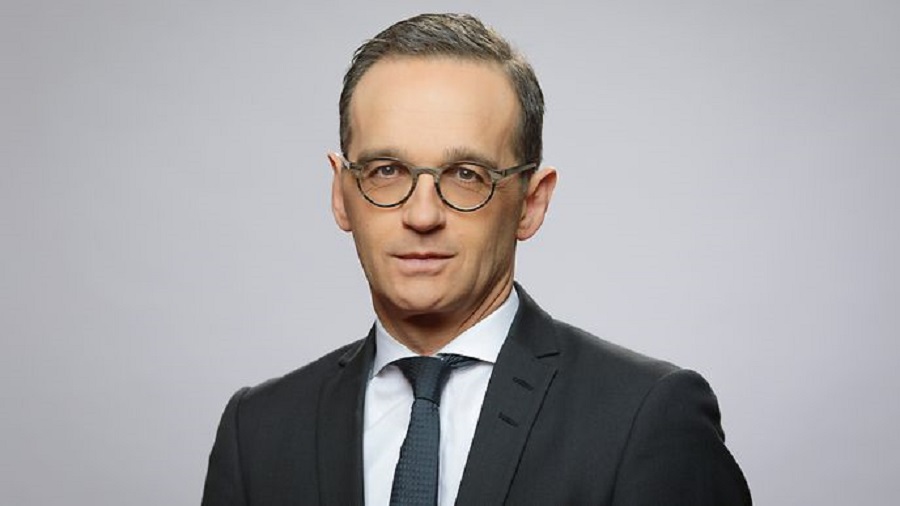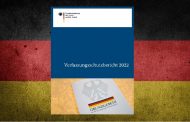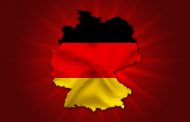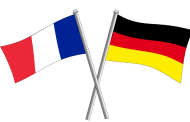Speech by Foreign Minister Heiko Maas at the Global Solutions Summit 2018
_____________________________________________________________________________________________________________________________________
Ladies and gentlemen,
No matter where I have been for talks since taking office – whether at the United Nations in New York, at the African Union in Addis Ababa or just a week ago in Buenos Aires with my G20 colleagues, one question has been to the fore:
Do we have enough determination and strength to find shared responses to the challenges of our time?
A glance at the media shows us almost every day the major problems and crises that we face today. It is our job to find responses. Thus I am especially delighted that you are meeting this year in Berlin again to work together on the pressing questions of our time. The Federal Government sees the Global Solutions Summit as an important forum for productive exchange and one which can provide politics with fresh momentum.
The discussion about how we, the international community, want to work together, about what solutions are possible and how we can prevent a shift back to a world dominated by power struggles – this discussion is now probably more important than ever.
This demands a huge effort also from German foreign policy.
Ladies and gentlemen,
The world order is currently in flux. But this is not a source of concern or even anguish everywhere. While in Europe people are above all lamenting the supposed end of the Western order, elsewhere people are focusing on the opportunities created by globalisation which the digital transformation has accelerated and by the emergence of new powers.
Of course we Germans also welcome a shift in the world order in principle.
After all, greater involvement of our partners worldwide in global governance – both in terms of institutions but also the resulting rights and obligations – is absolutely essential.
But what we are seeing in many places is something different. It is not an adaptation or further development of what we have. It is not a more inclusive system update, a liberal world order 2.0.
We feel that some of the current changes are changes for the worse which we are not prepared to accept. The return to zero-sum thinking and renewed nationalism exerts pressure on the idea of multilateralism to an extent not seen in recent decades.
International law is being watered down and even broken. The international trading system and its institutions face serious tests of their mettle.
For us, these are the consequences of an increasing fragmentation of the world order in which power politics and the short-term assertion of interests are becoming the norm at the expense of international rules and legal foundations.
In other words, the law of the strong is riding high, not the strength of the law.
Ladies and gentlemen,
We need of course to take note of these developments.
But we should stand firm in our convictions. A multilateral order based on agreed rules is and remains the best response to the challenges of our time.
It is this order that enabled us to again become a recognised member of the international community by being part of European, transatlantic and global institutions and by generating economic growth and establishing trade relations.
Our export-based economy needs a stable and reliable economic and trade system.
We can best preserve our security interests in resilient alliances but also with the help of a stable architecture of disarmament regimes. Furthermore, the Federal Government believes we can only tackle the tasks which will define our future, such as protecting the climate and oceans or combating epidemics, if we work with rather than against one another.
For us, the question is thus very pressing as to how we, how Germany is, in an increasingly fragmented world with growing instability and rising nationalism, going to make a concrete contribution to defending and where possible strengthening the rules-based world order.
Needless to say, I am thinking here first and foremost about the role of the EU. When we stand together, Europe is still strong enough to make a difference in the world. We are economically strong, are gaining foreign policy clout and have a valuable soft power people listen to us and are ready for us to convince them. This means, however, that we also need good arguments.
After all, the question as to the future of multilateralism and the liberal world order is one which is of course not decided in Europe alone.
Much will depend on whether we manage to make common cause with partners worldwide who share our interests and our firm belief in the need for liberal values and multilateral diplomacy. We know this is not an easy task as I saw for myself not least during my first visit to Washington as Foreign Minister. This brings me to my first example highlighting the importance of concrete multilateral solutions.
Ladies and gentlemen,
The nuclear agreement with Iran epitomises the opportunities but also the current crisis of multilateralism.
Washington’s unilateral withdrawal from the agreement is a major setback. It puts multilateralism to the test not just in the case of Iran. The agreement was after all endorsed unanimously by the UN Security Council.
The International Atomic Energy Agency has been in charge of monitoring compliance.
We Europeans will fight for the agreement. We are united in our goal of upholding the substance of the nuclear agreement despite the new policy pursued by the United States. For us, for the E3, the agreement is not just a milestone for international diplomacy and a cornerstone of the global nuclear non-proliferation architecture.
The agreement is central to regional stability in the entire Middle East and thus affects our security interests in Europe.
No matter how difficult it might be, we will leave no stone unturned in our endeavours to uphold the agreement.
Part of this is seeking dialogue with our partners in the region and beyond who have an interest in maintaining the Iran agreement and all that it stands for.
That means we will continue in our endeavours to fulfil Iran’s hope for economic recovery and good trade relations provided that Iran also stands by its commitments. However, we are also conducting critical dialogue with Tehran on its role in the region and its missile programme.
After all, it will be difficult to draw up a positive agenda with Iran if its neighbours see the country as a threat to stability and peace in the region.
Ladies and gentlemen,
In just a few days, on 8 June, Germany will in all likelihood be elected as a member of the Security Council for the period 2019-20. Performing this responsible role is a central task of our foreign policy in this legislative term.
We will have a seat in the Council at a particularly important, indeed even a particularly difficult juncture. In recent years, the UN Security Council has unfortunately been characterised by blocking tactics rather than cooperation. This is embodied in all its brutality by the ongoing war in Syria.
In the UN Security Council, we will tirelessly use our voice to support multilateral action. And not only there.
The political process in Syria is in urgent need of new momentum. We are doing all we can within the so-called Small Group, a core group of particularly engaged countries to move forward.
The aim is to support the UN-led Geneva process to finally create the prerequisites for real inner-Syrian talks under the auspices of the United Nations.
The same holds true for the tension in eastern Ukraine. After five years of combat, we need new momentum for the implementation of the Minsk agreements. That is why I have agreed with Foreign Minister Lavrov to hold timely consultations at foreign minister level in the Normandy format. After all, without close dialogue with Russia there will be little movement in Ukraine, but also in other crises. It is understandable that in New York partners are looking to us as we shouldered responsibility in this conflict at an early stage.
In New York, we will work to ensure crises are contained at best before they break out and that countries can be stabilised in the long term following conflicts. And we will advocate taking a comprehensive approach to security and also for example considering climate change as a security problem. We support Secretary-General António Guterres in his efforts to make the United Nations as a whole more effective when it comes to conflict prevention and peacekeeping.
We don’t want always to arrive when it is too late. Together for example with small island states who are particularly threatened by climate change, we want to put this issue on the agenda of the Security Council. And we support the 2030 Agenda for Sustainable Development whose implementation is to lay the foundation stones for a just, sustainable and peaceful world.
There also needs to be more international cooperation on the regional and global challenges which are not perhaps hitting the headlines every day but are no less important.
Particularly when it comes to these challenges, we will advocate multilateral approaches in New York and beyond – whether within the UN system, in the G7 and the G20 and in cooperation between the European Union and other regional organisations.
Ladies and gentlemen,
We want to continue to play an active role in highlighting African concerns also as a member of the UN Security Council. After all, the African Union and its regional organisations are not just the central crisis managers on the continent. In a world marked by various poles of power, Africa will also develop an increasingly defining role.
During my first visit to the African Union in Addis Ababa a few weeks ago, I thus underscored the support of Germany and Europe for AU reform on crisis management and economic integration – including the continental free trade area. We know from our own experience in Europe that this demands considerable staying power.
For Europe, a strategic partnership with Africa is becoming more and more important. Peace and security, population growth, youth unemployment and migration, sustainable development and fair trade relations – these are the shared challenges on our neighbouring continent that we must, in our own interest, tackle together.
With the Compact with Africa initiative, Germany last year created an instrument to make targeted contributions to private-sector investment and to create urgently needed jobs in the Compact states within the framework of the G20 Africa Partnership. It is important to ensure continuity for this initiative in the G20 framework and to pool the commitment of the G20 countries.
Ladies and gentlemen,
The crisis of the World Trade Organization, the US tariffs on steel and aluminium and the threats directed at the car industry show us that we can no longer take the advantages of free trade and an international set of rules for granted. Transactionalism and protectionism are defining the action and announcements coming from Washington, for whom a country’s foreign trade figures with the United States seems to have become the new yardstick governing relations.
For us, world trade is not a global zero-sum game. It is an important driver of growth, promotes innovation and creates jobs.
But to do so, it needs a functioning, rules-based trade system.
More than ever before, we need to defend these achievements and keep actively shaping the global economic system. Here, too, it is a matter of pooling the influence of those global partners who continue to uphold the importance of an open, reliable and transparent world trade system. That is what we are working on together with our European partners by concluding comprehensive bilateral free trade agreements with partners worldwide and strengthening the WTO’s multilateral trade system.
Ladies and gentlemen,
The future of multilateralism, the 2030 Agenda, economic and social opportunities in Africa and free world trade these are all issues that are high up on the G20 agenda.
Finding a shared approach amongst G20 countries is not something that has necessarily got easier. That became plain a week ago at the G20 Foreign Ministers Meeting in Buenos Aires. But given the countless challenges, there is to my mind no alternative than to keep trying.
This also holds true for other issues and in other forums.
There are at the end of the day countless examples of what we can achieve, also with the United States, if we all pull in one direction. One such example is that Europe, the United States and many other countries did not recognise what was done in violation of international law in Crimea. Or our important successes as part of the Global Coalition against Daesh in the fight against terrorism in Iraq and Syria.
But, and that is also clear, dialogue between government representatives is no longer enough if we want to meet many of the global challenges.
Global governance and effective multilateralism require the active involvement of civil society, the private sector and scientists, mayors and of course think-tank representatives.
The T20 Global Solutions Summit is a wonderful format in which to give these voices a platform, a forum in which to think outside the box and seek innovative solutions for global challenges.
I would thus like to close with the words of Jeffrey Sachs who showed us the way forward last year in this very forum: “It is not your job to be quiet or pleasant”.
So keep making demands of politics! Rarely has it been so important.
Now I look forward to hearing your questions.
* * * * *
Zdroj a ilustračné foto: https://www.auswaertiges-amt.de/en/Newsroom/maas-global-solutions-summit/2099228







